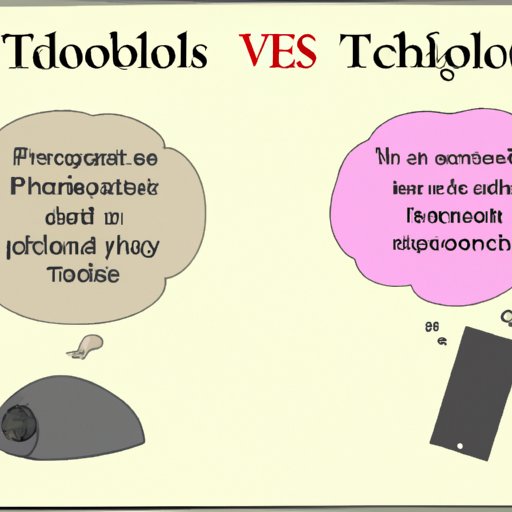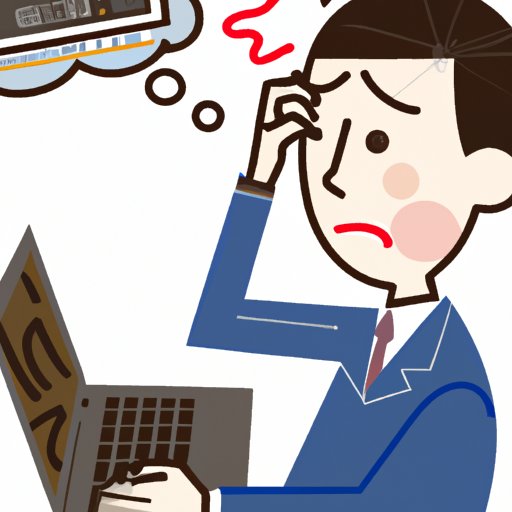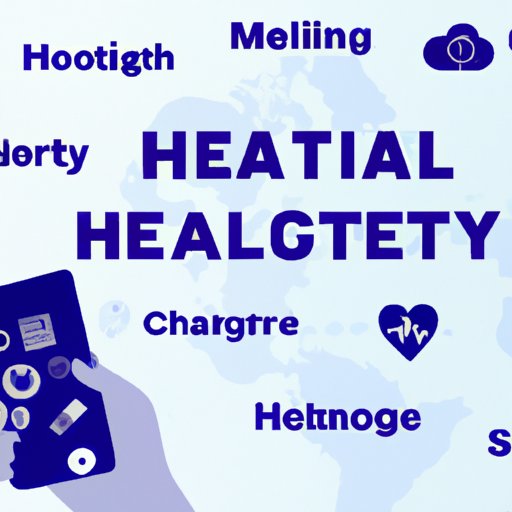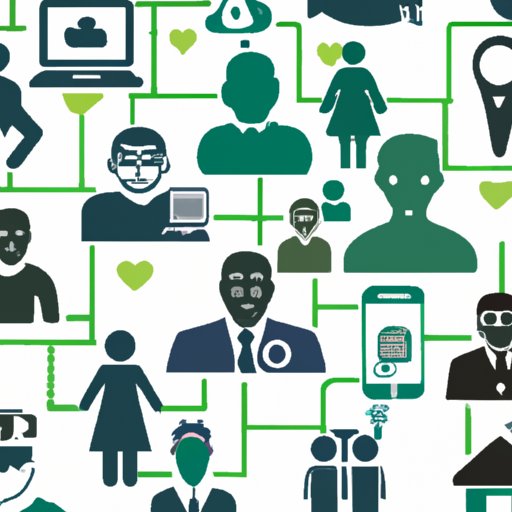Introduction
Technology is defined as the application of scientific knowledge for practical purposes. In today’s world, technology plays an integral role in our lives, from communication to education to employment. This article will explore how technology has changed our lives and the impacts it has had on various aspects such as communication, education, employment, health care, social interaction, and the environment.
How Technology Has Changed the Way We Communicate
The rise of technology has drastically transformed the way we communicate. Social media platforms such as Facebook, Twitter, and Instagram have become an integral part of our lives, allowing us to connect with people from all over the world. According to a study by the Pew Research Center, 74% of online adults use social networking sites, up from just 8% in 2005. In addition, instant messaging apps such as WhatsApp, WeChat, and Telegram have made it easier for us to keep in touch with our friends and family members.
Video conferencing technologies such as Zoom, Skype, and Google Hangouts have also revolutionized the way we communicate. These technologies allow us to stay connected with our colleagues, classmates, and loved ones, no matter where they are located. According to a survey by Statista, 66% of respondents reported using video conferencing in 2020, compared to only 45% in 2019.
The Impact of Technology on Education
Technology has had a major impact on the field of education. Online learning platforms such as Coursera, Udemy, and Khan Academy have made it possible for students to access educational resources from anywhere in the world. According to a survey by the National Center for Education Statistics, 32% of college students took at least one online course in 2017, up from 21% in 2012.
In addition, robotics and artificial intelligence are being used to enhance the learning experience. For example, AI-powered virtual tutors can provide personalized feedback to students and help them understand difficult concepts more easily. Robotics can also be used to teach students about coding and engineering principles in a fun and engaging way.

The Pros and Cons of Technological Advances
While technology has brought many benefits to our lives, it has also posed certain challenges. One of the biggest benefits of technology is that it has made our lives more convenient. For instance, online shopping platforms such as Amazon and eBay allow us to purchase goods without having to leave the comfort of our homes. In addition, technologies such as self-driving cars, drones, and robots are making everyday tasks faster and more efficient.
On the other hand, technology has also created certain challenges. For example, the proliferation of fake news on social media platforms can lead to misinformation and confusion. In addition, increased reliance on technology has resulted in diminished privacy, as companies collect data about our online activities.

The Effects of Technology on Employment
Technology has also had a major impact on employment. Automation and artificial intelligence (AI) are playing an increasingly important role in the workplace, resulting in job losses for certain professions. According to a report by the McKinsey Global Institute, nearly 50 million jobs could be replaced by automation by 2030.
However, technology is also creating new opportunities in the digital age. For instance, the emergence of new technologies such as blockchain, machine learning, and the Internet of Things (IoT) has opened up new career paths for those with the right skills. In addition, the gig economy has provided more flexible work opportunities for freelancers.

How Technology is Changing the Health Care Industry
Technology is also transforming the health care industry. Telemedicine, or the use of electronic communication to provide medical services, has made it easier for patients to access health care from the comfort of their own homes. According to a survey by Grand View Research, the global telemedicine market was valued at $38.3 billion in 2018 and is projected to reach $130.5 billion by 2025.
Wearable technology such as fitness trackers and smartwatches have also become increasingly popular, allowing users to monitor their health and fitness levels. In addition, big data and artificial intelligence (AI) are being used to analyze patient data and develop new treatments for various diseases.

The Impact of Technology on Social Interaction
Technology has had a major impact on social interaction. On the one hand, it has allowed us to connect with people from all over the world through social media platforms and video conferencing technologies. According to a study by the American Psychological Association, people who use social media platforms tend to have larger social networks and higher levels of social support.
On the other hand, technology has also had a negative impact on our social lives. Increased connectivity has led to diminished privacy, leaving us vulnerable to cyber attacks. In addition, excessive use of technology can lead to isolation and loneliness, as people spend less time interacting with others in person.
The Impact of Technology on the Environment
Finally, technology has had a significant impact on the environment. The production of electronics requires large amounts of energy, resulting in increased pollution. In addition, the disposal of electronic waste has become a major problem, as many countries lack proper waste management systems.
Furthermore, technology has resulted in increased energy consumption. According to a study by the International Energy Agency, the total global energy demand is expected to increase by 28% between 2018 and 2040, due largely to the growing use of technology.
Conclusion
In conclusion, technology has had a profound effect on our lives, from communication to education to employment. While technology has brought many benefits, it has also posed certain challenges. The impacts of technology can be seen in areas such as social interaction, health care, and the environment. In order to maximize the benefits of technology and minimize its risks, it is important to use it responsibly and thoughtfully.
(Note: Is this article not meeting your expectations? Do you have knowledge or insights to share? Unlock new opportunities and expand your reach by joining our authors team. Click Registration to join us and share your expertise with our readers.)
